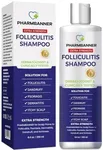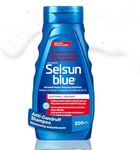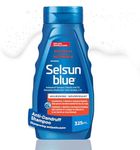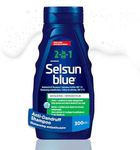Buying Guide for the Best Antifungal Shampoos
Choosing the right antifungal shampoo can make a big difference in managing scalp issues like dandruff, itching, or fungal infections. The best approach is to understand your specific scalp and hair needs, as well as the severity of your symptoms. It's important to look at the active ingredients, how often you plan to use the shampoo, and any sensitivities you might have. By focusing on these key aspects, you can find a shampoo that not only treats the problem but also fits comfortably into your hair care routine.Active IngredientThe active ingredient is the main component in antifungal shampoos that targets and eliminates the fungus causing scalp issues. Common active ingredients include ketoconazole, selenium sulfide, and zinc pyrithione. Each works slightly differently: ketoconazole is strong and often used for more persistent problems, selenium sulfide helps reduce flakiness and itching, and zinc pyrithione is milder and suitable for regular use. If you have a mild case or sensitive skin, a shampoo with zinc pyrithione might be best. For more severe or stubborn issues, ketoconazole or selenium sulfide could be more effective. Always consider your scalp's sensitivity and the severity of your symptoms when choosing.
Frequency of UseHow often you need to use the shampoo depends on both the product's strength and your scalp's condition. Some antifungal shampoos are designed for daily use, while others are meant for use only a few times a week. Daily-use formulas are usually gentler, making them suitable for ongoing maintenance or mild symptoms. Stronger formulas may be too harsh for everyday use but are effective for short-term, intensive treatment. If your symptoms are mild or you want to prevent recurrence, a gentle, frequent-use shampoo is ideal. For active flare-ups, a stronger, less frequent-use shampoo may be necessary.
Scalp and Hair Type CompatibilityNot all antifungal shampoos are created equal when it comes to different hair and scalp types. Some formulas can be drying, which may not be suitable for people with already dry or sensitive scalps. Others may be more moisturizing, making them better for those with dry or curly hair. If you have oily hair, look for a formula that helps control excess oil without stripping your scalp. For color-treated or chemically processed hair, choose a shampoo labeled as safe for such hair to avoid fading or damage. Understanding your hair and scalp type will help you pick a product that treats the problem without causing new issues.
Additional Soothing IngredientsMany antifungal shampoos include extra ingredients like aloe vera, tea tree oil, or chamomile to help soothe irritation and reduce inflammation. These can be especially helpful if your scalp is itchy, red, or sensitive. If you often experience discomfort or have a history of scalp irritation, look for a shampoo with these calming ingredients. However, if you have allergies or sensitivities, check the ingredient list carefully to avoid potential reactions.
Fragrance and AdditivesSome antifungal shampoos contain added fragrances or other chemicals to improve scent or texture. While these can make the shampoo more pleasant to use, they may also cause irritation for people with sensitive skin or allergies. If you have a sensitive scalp or prefer to avoid unnecessary chemicals, opt for a fragrance-free or hypoallergenic formula. If scent is important to you and you have no sensitivities, a lightly fragranced option can make the experience more enjoyable.




















